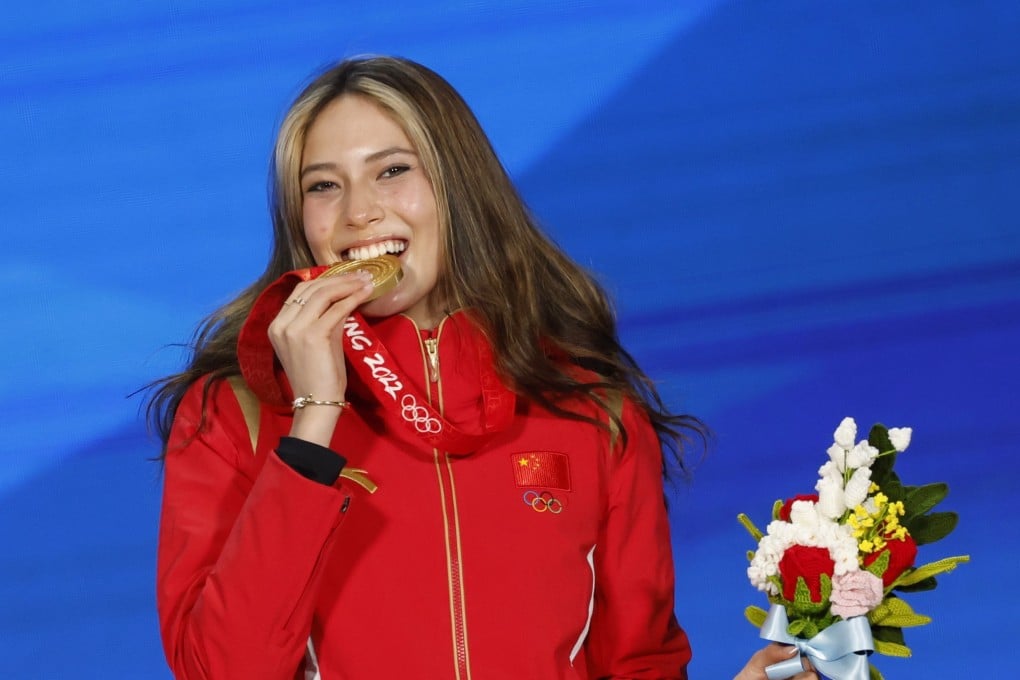Is Winter Olympics star Eileen Gu Chinese or American? Let people be both, says Beijing researcher
- Amend outdated law that does not recognise dual citizenship, demographer suggests
- Chinese abroad have ‘talent that China’s modernisation drive urgently needs’ and it is in the country’s interest to remove obstacles

But all ambiguities could be resolved if China were to remove the article in its nationality law that rejects dual citizenship, according to Huang Wenzheng, a population expert at a Beijing-based think tank.
If this proposal is adopted, “Gu Ailing’s Chinese nationality issue will not have any legal obstacles and ambiguities,” Huang said, referring to Gu by her Chinese name in an article published on the WeChat account of the Centre for China and Globalisation.
Huang, a senior researcher at the centre who had first raised this proposal six years ago, also called on authorities to prioritise recognising the Chinese origins of overseas residents with foreign citizenship – not only to attract more talent from abroad but also to ease China’s demographic crisis.
China’s nationality law – enacted in 1980 – stipulates that anyone acquiring foreign citizenship would automatically lose their Chinese nationality.
The law was “not in keeping with the times”, Huang wrote, as the country’s “economic and social situation has undergone tremendous changes, and the depth and frequency of exchanges with foreign personnel have long been different.”
